There’s a lot of discussion in our year of the Lord 2022 about what books are “appropriate” for children to read and which can be potentially damaging. I understand parents not wanting to be forced to have conversations they find difficult with their children. I also understand parents wanting their children to remain innocent of some of the horrors that adults have to deal with. I do. I get it.
I understand these points of view; I just think they’re wrong. The disconnect for me comes here: preventing kids from learning about bad things doesn’t prevent them from experiencing or participating in bad things. It just leaves them defenseless to face those bad things when they happen. It leaves them without the vocabulary necessary to go to an adult and say, “A bad thing happened. I need help.”
When I was in elementary and middle school, I had access to many books that I’m sure would have seemed inappropriate for my age. In 7th grade reading class, for example, I picked up a book because it had ice cream in the title and I was (and remain) an ice cream enthusiast. But the book ended up being about a teenage boy coercing his girlfriend into having sex with him through a really stupid ice cream metaphor. She ended up pregnant, and while I don’t remember what soapbox the author was on about, the book did teach me a thing or two about consent. I’m sure that book would be banned today for “sexual content,” but nearly 30 years later, I still remember how empowered I felt knowing the tactics boys and men might use to get me to do something I didn’t want to do, to make me feel like I owed it to them in some way — and the ways in which I could fight against those tactics.
Years before that, when I was 7 years old, I checked out a book of essays that I believe were written by childhood survivors of sexual abuse. I don’t remember everything about the book — or much about it, really. What I do remember is keeping it hidden in my bedroom closet for fear my mother would find it and have questions. Why was I reading it? What did it have to do with me? I couldn’t have articulated it at the time, but I do remember reading those stories and feeling like there was something in them that made sense to me. That they applied to me and my life in some way.
Decades later, months before my 40th birthday, I was sitting in my therapist’s office, twiddling my thumbs. I’d just gone over the long list of traumas I’d experienced throughout my life. I sat there quietly while she gave me that cock-headed therapist look that I believe is supposed to be thoughtful and empathic, giving me space to say more. I called her bluff and waited her out. She finally asked me, “How do you feel talking about these issues?”
Today In Books Newsletter
Sign up to Today In Books to receive daily news and miscellany from the world of books.
Thank you for signing up! Keep an eye on your inbox.
By signing up you agree to our terms of use
I shrugged and finally looked away. “I mean, it sucks, but it’s what, like one in three women are abused physically and/or sexually in their lives? So, you know…” I shrugged again.
“No, I don’t know.”
“You don’t know what?”
“I don’t know how you feel about what you’ve told me today. You’ve given me a lot of information, but I haven’t heard any feelings about any of it. How are you feeling right now — not what are you thinking. What are you feeling?”
I thought about it for a minute, realizing that was the opposite of what she wanted me to do. “I guess I feel sad for the kid I was and the woman I was in my 20s and all the people I was, I guess, who were hurt. And I know they thought it was their fault. I know that’s not true, like, intellectually, but… Yeah, I guess sad, and I wish I could go back and talk to them and let them know that it’d be okay. That I’d eventually be able to walk down the street again.”
My therapist let me sit with this for just a touch longer than was comfortable. “Is that it? You feel sad for that girl and that woman? What about the people who abused you? How do you feel about them?”
I shrugged again, “I don’t know. They’re gross? I don’t want to see them again, is that an answer? I try not to think about them. I don’t have any control over them or what they’ve done or what they’ll do, so I don’t want to waste any time on them.”
At that point, I’d had enough physical and emotional wriggling and I made a joke about something and she took the hint and we moved on. In the months that followed, she tried to bring the conversation back to that abuse and those abusers but I would cut her off quickly.
Then my therapist got pregnant and took an extended leave from therapizing. In our last session, she asked if I wanted to hear some thoughts she’d had during our year together. Of course I said yes, assuming she was just going to confirm that I am extremely good at therapy and very funny and she’d never had a better patient, A+ for me, I had won therapy!
Not quite.
“Do you know that in the many times you’ve talked to me about the abuse you’ve survived and the people that did these things to you, you’ve never mentioned feeling angry?”
I was stunned — and I mean that in a very dictionary definition sort of way: “so shocked that one is temporarily unable to react.”
She gave me some time to process before gently asking me, “What are you feeling. . . or thinking?”
“There was this book,” I told her. “I haven’t thought about it for years. It was a book of essays written by childhood abuse survivors. I don’t remember it very well, there’s only one thing I really remember about it in any kind of specific way. This girl, writing about her experience talking to her family about her abuse, writing about her process of healing, she talked about how mad her mom had gotten at her abuser. About how angry her mother had been that someone had hurt her child in that way. The essay ended with ‘My mother gave me the gift of anger.’”
And that’s when I started weeping at my therapist for the first time. That was when I could physically feel what I’d felt like as a helpless child. That was when I remembered how sore my hands had been the day after I talked to my mom about my abuse at 17, sore because I’d balled up my fists so tight when she’d told me “just don’t think about it, it’s not something to talk about.”
I’ve since asked her why she’d responded that way. She told me that she genuinely thought that it would do more harm than good to think about it or talk about it too much. That just “getting over it” was the easiest and best thing. She really thought she was doing what was right.
And you know why she thought that? Because she had been taught that as a kid. Because she had never been exposed to other opinions. Because she had never read a book of essays written by abuse survivors. Because she had never heard someone say, “I was abused as a child and I am better because I talked about it and because I grieved.”
I do not think of anger as a positive feeling or something to strive for, just like I don’t think of sadness as a positive feeling or something to strive for. But they are both very real and a person has a right to them, sometimes, and a person is allowed to feel them. My therapist gave me that right, that gift of anger, the ability to be angry at someone who had done something terrible to me.
My therapist gave me that gift of anger when I was 39-years-old, and I cannot express how essential that gift has been. But what if my mom had had the resources to give me that gift when I was 17? What if I’d had a wealth of resources at my local library, discussing child abuse, child sexual abuse, and trauma? What if I’d been able to read the words of girls and boys like me, who were hurt and scared and felt that they had to hold it all in, that they had to bury the very feelings that would free them?
What if those who seek to remove books that deal with difficult topics could come to understand that it is not the discussion of those difficult topics that ruins a child? It is the people who commit those crimes. It is the silence the children live with.
What if.




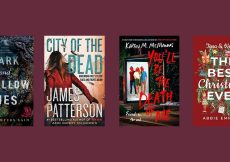
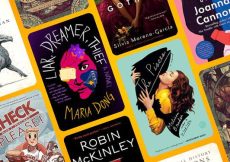
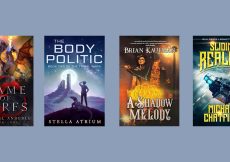
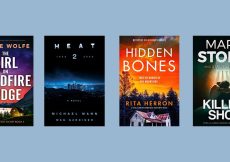

















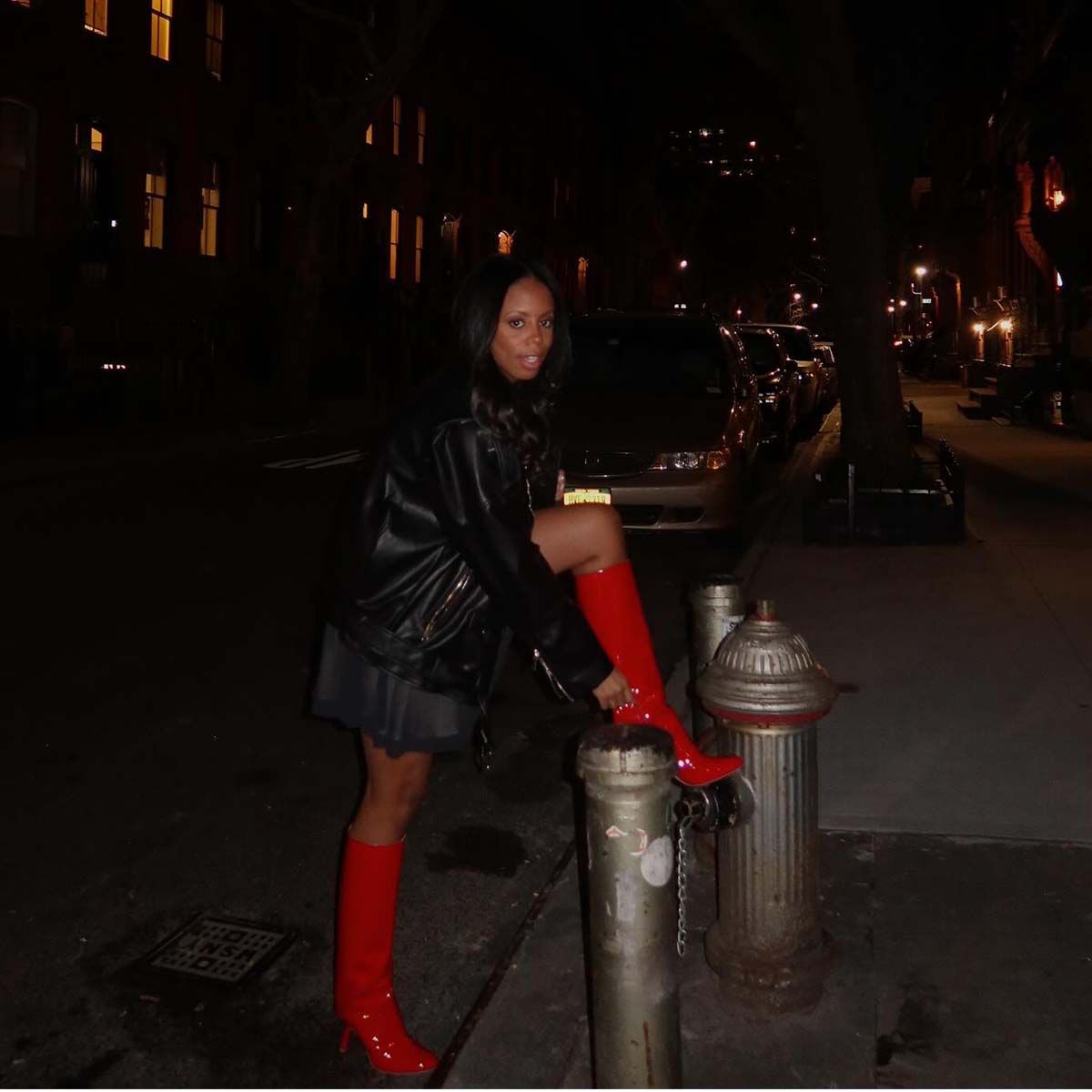

:quality(85):upscale()/2023/05/11/976/n/1922564/782262e2645d6b967847b4.74342194_.png)








